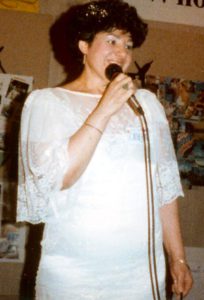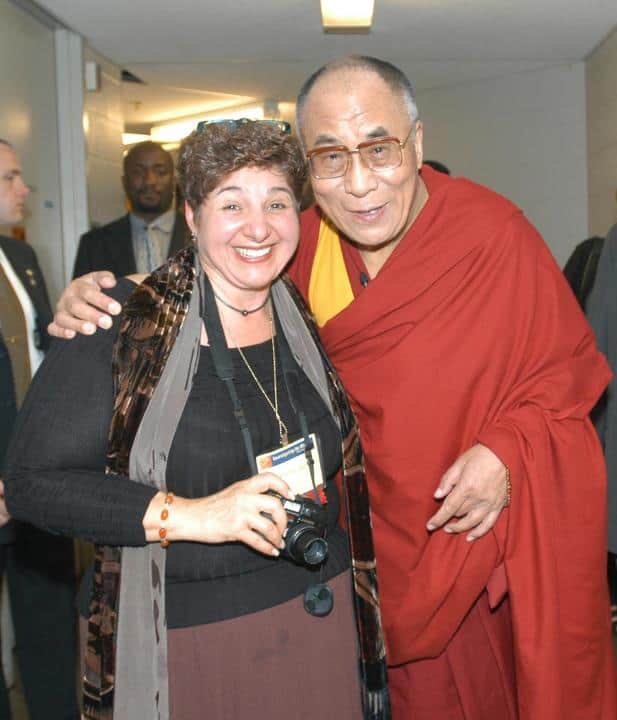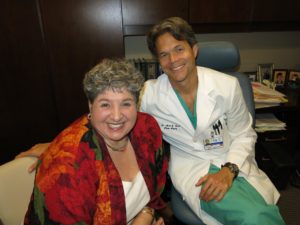Announcements & News Updates:
 A big warm WELCOME to Lisa Duerre. Lisa has been working with us this past year and we are now more formally welcoming her as a collaborator and partner in our mission to help those with lipedema. Lisa is the Co-Founder & CEO of RLD Group working in high-tech corporations in leadership development and overall improvement for employees in the workplace. She also brings her own compelling journey with lipedema. I think you will grow to love and value Lisa as you get to know her, the way that we do.
A big warm WELCOME to Lisa Duerre. Lisa has been working with us this past year and we are now more formally welcoming her as a collaborator and partner in our mission to help those with lipedema. Lisa is the Co-Founder & CEO of RLD Group working in high-tech corporations in leadership development and overall improvement for employees in the workplace. She also brings her own compelling journey with lipedema. I think you will grow to love and value Lisa as you get to know her, the way that we do.
CATHERINE’S JOURNEY
Greetings! My name is Catherine Seo and I’m glad you found this website. If you have struggled with weight and body issues, there may be answers for you here. But first, let me share a little bit about my story.
 After almost 40 years of struggling with weight issues, I successfully shed and maintained a weight loss of 140 lbs from 1987 – 2007. This was based on regular attendance at self-help groups and a structured very low carbohydrate food plan of weighing and measuring 3 meals a day with no sugar, flour, grains or high starch veggies and nothing in between meals except water, diet soda or tea. Yes, I carried a scale with me, and weighed and measured all meals no matter the situation. I was still considered overweight by most charts, with fat persistently holding onto my thighs, upper arms, and hip region, but I was content in my size 14s and occasional 12s.
After almost 40 years of struggling with weight issues, I successfully shed and maintained a weight loss of 140 lbs from 1987 – 2007. This was based on regular attendance at self-help groups and a structured very low carbohydrate food plan of weighing and measuring 3 meals a day with no sugar, flour, grains or high starch veggies and nothing in between meals except water, diet soda or tea. Yes, I carried a scale with me, and weighed and measured all meals no matter the situation. I was still considered overweight by most charts, with fat persistently holding onto my thighs, upper arms, and hip region, but I was content in my size 14s and occasional 12s.
Peri-Menopause and Lipedema
And then beginning in 2003 and lasting for several years, I had a rough peri-menopause and even rougher menopause. Slowly weight crept back on, especially in my bottom half but also in my upper arms. The picture to the right of me with His Holiness the Dalai Lama shows my arms which had blown up again, despite my structured food program. Though I love the picture, (I was one of four photographers on staff during his visit to MIT), I usually have cropped it to eliminate the visual of my upper very swollen arm.

By 2009 I had slowly regained 25 lbs over 6 years despite my continued regime and even increasingly stricter food choices. Additionally, I then developed a cystic condition that resulted in as many as 18 – 20 cysts at a time at various tender locations on my body. My mobility was affected and I had difficulty walking, it was significantly painful.
My first automatic response is generally a deep sense of shame and despair. I somehow seemed to land on “it’s my fault.” Healthcare professionals either explicitly or implicitly reinforced this self-assessment. Although the accepted meme in our culture is that weight gain is the result of one’s own life style choices, and in many cases it may be, this just was not so in my situation.
MisDiagnosis, the Wrong Surgery & Complications
After many visits to numerous doctors, the best of the best Harvard affiliated in the Boston area, there was little clear diagnosis as to the weight gain, and a recommendation for surgical excision. I considered long and hard and in 2009, I began a challenging series of 5 surgeries spaced over 3 years.
Unfortunately I was misdiagnosed, and my situation further complicated by inexperienced and unauthorized residents operating on me at Mass General Hospital, a well respected teaching hospital, ranked as the #1 hospital for 2012-2013 in the USA by U.S. News & World Report.
The last surgery in August 2011 resulted in significant and painful complications. One of these complications was diagnosed as Lymphedema, a condition in which there is localized fluid retention and swelling caused by a compromised lymphatic system. In my case it affected both legs and both arms. In addition to causing serious compromise and disturbance to my lymphatics, the surgery had exacerbated the underlying condition of lipedema and I was left to deal with both conditions. The results were progressive, significant, painful and life-changing.
Since December 2011 healing became my full-time focus. I began a rigorous regime of exercise and cut down on food choices even more. Leafy green veggies such as swiss chard and kale became staples along with fish and limited low glycemic fruits such as blueberries and grapefruit. Over 15 months, I clocked 1800+ hours of physical therapy, aqua aerobics/water jogging, walking, yoga, stretching, Pilates, kick-boxing and rebounding/jumping on a trampoline.

During 2012, I walked my first 5K in June, and my second in September, and my third in December. During 2013, I walked five 5Ks. There has been some progress, but it is definitely not commensurate with the level of engagement, commitment and effort. Something more than Lymphedema was at play since the tissue in my legs was not responding as predicted or corresponding with the quality and quantity of care being applied.
In dealing with Lymphedema as only one of the issues arising from the surgery, and going to physical therapy 5 days a week for many months, I began to delve into understanding what had happened and was happening to my body.
I began to read the classic text on the Lymph System: Földi’s Textbook of Lymphology: For Physicians and Lymphedema Therapists and found myself and my symptoms neatly listed. I had all of the symptoms described in the chapter about lipedema, and seemed to be a “textbook case” of the disorder. I discovered Rare Adipose Disease, or RADs, and specifically LIPEDEMA (LIPOEDEMA in Europe). A good reference at NIH (National Institute of Health). Rare adipose disorders (RADs) masquerading as obesity. (Karen Herbst, Feb 2012).
BUT WHY? — the good, the bad and the ugly…
Weight Stigma & Anti-fat Bias
the Good
As a Media Psychologist, I am exploring and researching the many aspects of obesity and it’s impact on women’s lives deeply influenced by our cultural distortions of women and our bodies. This recent discovery of a very personal nature has given rise to the question as to why did I so readily blame myself, even though I was doing all the right things.
Fortunately, my Primary Care Physician (PCP), Dr. Matthew Carmody, has encouraged and supported me each step of the way, empowering me to become my own healthcare advocate. He systematically worked with me to understand what was contributing to the symptoms, including weight gain, edema, and other issues. It was in discussions with him that I was often able to discern what to do next, where to look for answers. He validated and held the space for my process. I call him my “dashboard,” checking in with him, integrating new information, listening to & implementing his suggestions. For some amazing reason, he operates beyond the cultural norms of “weight stigma” not bringing anti-fat bias, explicit or implicit, into our exploration in trying to discover causality. He believed in me and helped me ask good questions, and I am a researcher.
the Bad
In discovery, I found that “Weight Stigma” distortions are integrated and reinforced in our culture in such a way that most people, including and especially healthcare professionals judge and blame the patient according to these norms assuming incorrectly that “diet and exercise” will always lead to a solution. Evidence demonstrates that this is not at all accurate. Recent literature points to a serious level of “anti-fat bias” prevalent in healthcare professionals. A recent article “Physicians Build Less Rapport with Obese Patients” (Gudzune, Beach, Roter & Cooper, 2013) reported that physicians’ interactions with patients who were overweight or obese indicated low levels of emotional rapport that weakened the relationship and decreased the effectiveness of the patient-physician relationship.
I experienced this directly with my surgeon, Dr. Jonathan M. Winograd. My interactions with Dr. Winograd illustrated these stereotypes. When I realized the extent of the impact of this anti-fat bias, it was too late. My body had already been significantly damaged.
and the Ugly
Unfortunately the relationship with my surgeon, Dr. Jonathan Winograd, was disastorous. In over 3 years and with 5 surgeries, he never once mentioned weight as a criteria or obstacle for surgical intervention. When the significant post-op complications became apparent, seemingly due to misdiagnosis and unauthorized surgical participation by the junior residents, he blamed me, more specifically, my weight.
Despite my many attempts to find a way to get Dr. Winograd to help me, his bias, and his concern for protecting himself from what he saw as a potential lawsuit far outweighed his concern for my deteriorating health condition. He blamed me and my weight for the complications rather than the misdiagnosis and distanced himself from the situation, becoming hostile, aggressive and eventually when I found answers as chronicled on this website, he refused to review it, informing me that over almost 3 months he was “just too busy,” then stated that I was “bullying him” and terminated my care.
Some would call this “gross negligence.” Our healthcare system, sadly, is quite broken. In addition to dealing with all of the physical complications, with no surgical support, I initially plumeted into despair. I was accustomed to blaming myself and my weight, so when Dr. Winograd blamed me and my weight, I agreed at a deep level, it must be my fault.
Finding my Power, Finding my Voice
At first, this consistent feedback and lack of support especially from these well-respected and trusted healthcare professionals disempowered me. I had held my former surgeon, Dr. Winograd, and his staff at Mass General Hospital in such high esteem.
I felt quite powerless until I discovered a body of literature about “anit-fat bias” in healthcare by Rebecca Puhl, PhD and Kelly Brownell, Ph.D. from the Rudd Center for Food Policy & Obesity at Yale University and other researchers. It’s a common phenomenon. Dr. Winograd’s blaming my weight was more about his own defensiveness, and fear, and not about me. And when I realized that I was not to blame, I became, as they say, pro-active and my own advocate. Not to be detered, I “kept calm and carried on” as my very dear Brit friends, the UK Lippie Ladies have coached me.
I found myself increasingly relying on my own sense of self-esteem, self-advocacy and determination. I became steadfast searching for and finding answers. I also connected with a community of women worldwide, who are supporting and encouraging one another. In the end, I feel blessed to say, self-compassion, self-efficacy and my own feistiness are winning. I have made progress, there is more to be done. These experiences are teaching me how to be pro-active, and stand firmly for patient rights that are all to often overlooked or even dismissed. I continue my journey seeking answers from the experts overseas, especially in Germany, the epicenter for treatment for lipedema. I have fully committed to finding solutions as the next stage of my research and exploration. There are 17 million women, my sisters, here in the USA who don’t need to go through what I have gone through. There are estimates as high as 350 million women worldwide. Perhaps you are one of them. Maybe you can find some answers here.
It’s Lipedema: It’s Not My/Your/Our Fault
I deeply hope this information can save even one woman from the circuitous, painful and difficult journey that I’ve navigated. There is hope.
And most of all I want you to know: “It’s not your fault.”
Update: June 2018
As we update this website, and I review much of this content that I wrote in 2012/2013 I am profoundly grateful. There are now lipedema groups around the world with many thousands of women being diagnosed and treated. There is a thriving community of advocates who help spread the word about this disease. There are clinicians, surgeons, therapists, and researchers who make up a network of providers. Lipedema ladies support one another globally. We care for each other.
There is a worldwide directory here: LIPEDEMA PROVIDER DIRECTORY CLICK HERE.
The Lipedema Project
 The Lipedema Project, co-founded in 2014 and co-directed with Mark L. Smith, MD, FACS continues to educate and raise awareness about lipedema. Special acknowledgment and deep gratitude to Dr. Smith. His generosity, kindness, expertise, and willingness to innovate within the healthcare system has set the pathway for the research and treatment including an eventual cure for lipedema.
The Lipedema Project, co-founded in 2014 and co-directed with Mark L. Smith, MD, FACS continues to educate and raise awareness about lipedema. Special acknowledgment and deep gratitude to Dr. Smith. His generosity, kindness, expertise, and willingness to innovate within the healthcare system has set the pathway for the research and treatment including an eventual cure for lipedema.
If anyone told me when I first wrote my story several years ago that any of this would have happened, I would have been in disbelief. I am now thoroughly convinced that when we partner, when we work together, when we dedicate ourselves to making a difference – MIRACLES HAPPEN!
Be sure to visit The Lipedema Project and Lipedema Univerity for information and help with this disease.
You are not alone…


